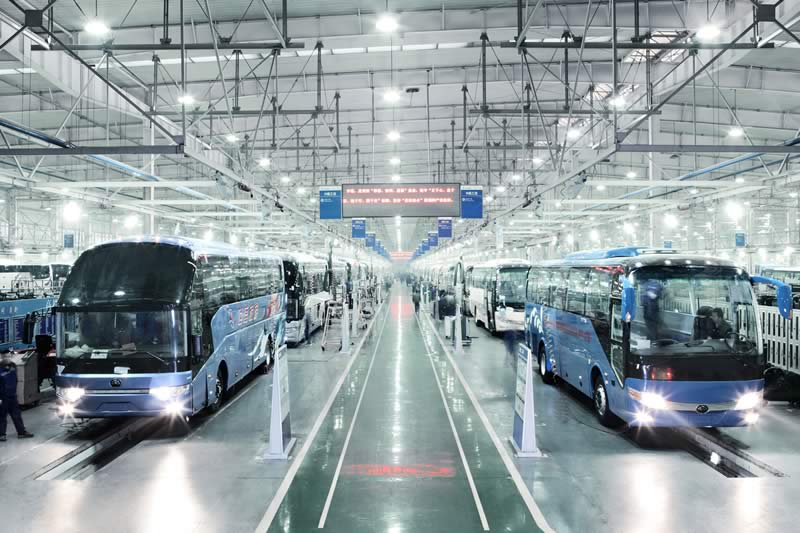São Paulo – Qatar Free Zones Authority (QFZA), an authority that oversees the free zones in Qatar, signed an agreement with Chinese company Yutong and local firm Mowasalat for establishing an electric bus (e-bus) manufacturing plant in Umm Al Houl Free Zone, Qatari newspaper The Peninsula reported in its website.
The deal is part of a wider Qatari initiative to ensure that 25% of the public bus network is powered by electricity in time for the World Cup 2022, with the entire public fleet system expected to be e-powered by 2030. Pictured above, a Yutong factory.
The multilateral framework agreement was signed in the presence of Qatar’s prime minister and minister of Interior Khalid bin Khalifa bin Abdulaziz Al Thani, and minister of Transport and Communications Jassim bin Saif Al Sulaiti.
Under the agreement, Mowasalat and Yutong will partner up to establish the factory. The e-buses will ferry World Cup visitors between stadiums and will be exported across the Middle East, Europe, South America, and Africa. E-bus production for export will be a major focus once manufacturing output reaches full capacity.
The deal will also see technology and knowledge transfers so e-bus parts will be manufactured by Qatari firms. These firms are expected to form the foundations of the region’s leading e-vehicle industry, supplying e-vehicles and parts to markets across the globe.
According to QFZA CEO Lim Meng Hui, the work on the manufacturing plant will start next year and by World Cup 2022, it will be able to manufacture e-buses. He added that it is a long-term plan divided into three phases, including production for exports.
Translated by Guilherme Miranda




